The new normal: propaganda
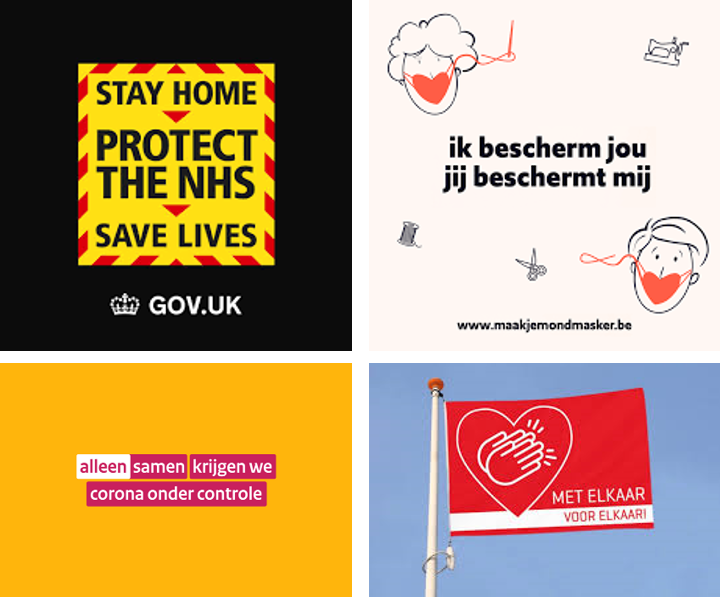
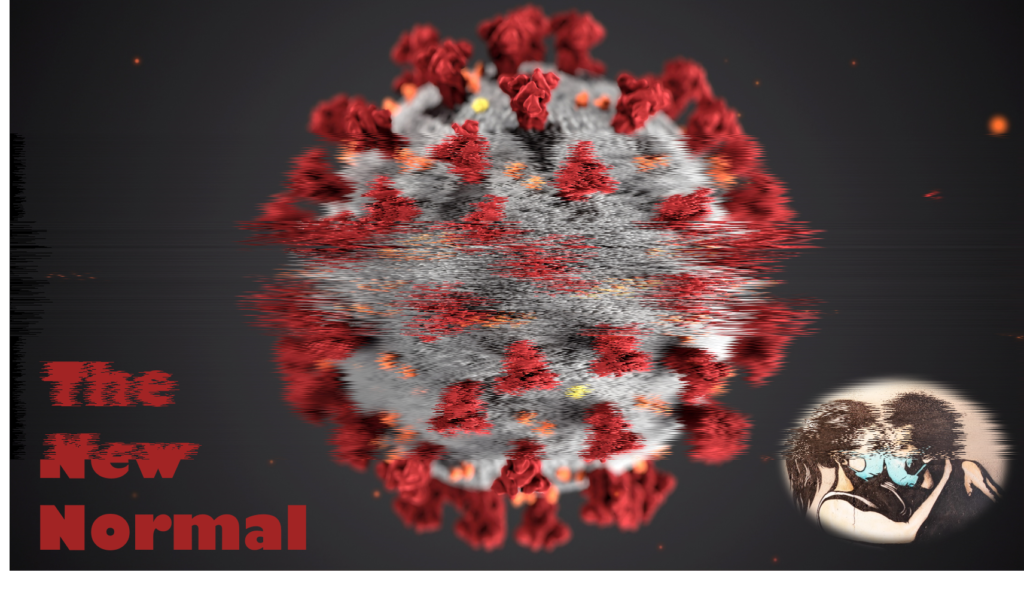
It was the beginning of March. The corona virus was wreaking havoc abroad, but here it seemed to be something only over-zealous HR policymakers were worrying about. Then, on the twelfth, we received the shock announcement that we would have to work from home until the end of the month. Three days later, the schools were closed for three weeks. Everyone I knew was counting down the days until we could get back to normal. Three weeks seemed like a long time.
On the seventh of April, a bombshell hit. During his press conference, the Dutch prime minister used two new phrases, ‘the new normal’ and ‘the 1.5m society’. My jaw dropped as my heart froze – surely it was impossible that this situation could become permanent? I could not believe in ‘the new normal’. Five months on, I’ve been forced to accept that many things I would have found bizarre back then, now indeed seem to have become normal. This series of blog posts will look at various aspects of the ‘new normal’ as I experience it in the Netherlands. This post: propaganda

Previously, my experience of propaganda fell, broadly speaking, into two categories. There was ‘What the Other Side Does’: Russian military parades on the Red Square, Hitler Youth songs, exaggerated productivity claims in Maoist China, American campaign advertising. Utterly absurd – and utterly chilling. Then there was ‘What We Did in the War’: ‘Dig for Victory’ posters, humorous films gently admonishing people to behave in an appropriate manner, sentimental songs exhorting them to hold on until better times came along. Also utterly absurd – but somehow sweet and nostalgic, to the extent that ‘Keep Calm and Carry On’ products even enjoy modern-day popularity. In either case, propaganda was something far removed from my daily life, either by distance or time. Not any more.
Now, we are surrounded by propaganda. No government press briefing is complete without a strategically placed slogan. The UK opted for ‘Stay Home. Protect the NHS. Save Lives’ in a hazard sign style on the front of the podium.
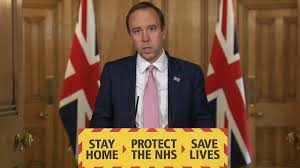
The Netherlands chose to turn the message ‘Alleen samen krijgen we corona onder controle”(Only together will we get corona under control) into a repeating wallpaper design.
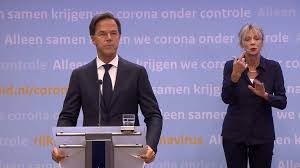
A shorter slogan ‘samen tegen corona’ (together against corona) has popped up all over the place, as has ‘zorg voor elkaar’ (care for each other), along with the more directive ‘houd afstand’ (keep your distance) and ‘blijf thuis’ (stay home). For masks, Belgium has opted for ‘Ik bescherm jou, jij beschermt mij’ (I protect you, you protect me). Television viewing is punctuated with morale-boosting public information adverts, and for those (like me) who skip ad breaks, corona propaganda even sneaks its way into the programmes themselves, in the form of hashtags on the screen, such as #staysafe. Photos on social media show how children have picked up the propaganda, and even our own daughters, despite living in the Netherlands, suddenly produced artwork containing the UK slogans. The message has clearly got through.
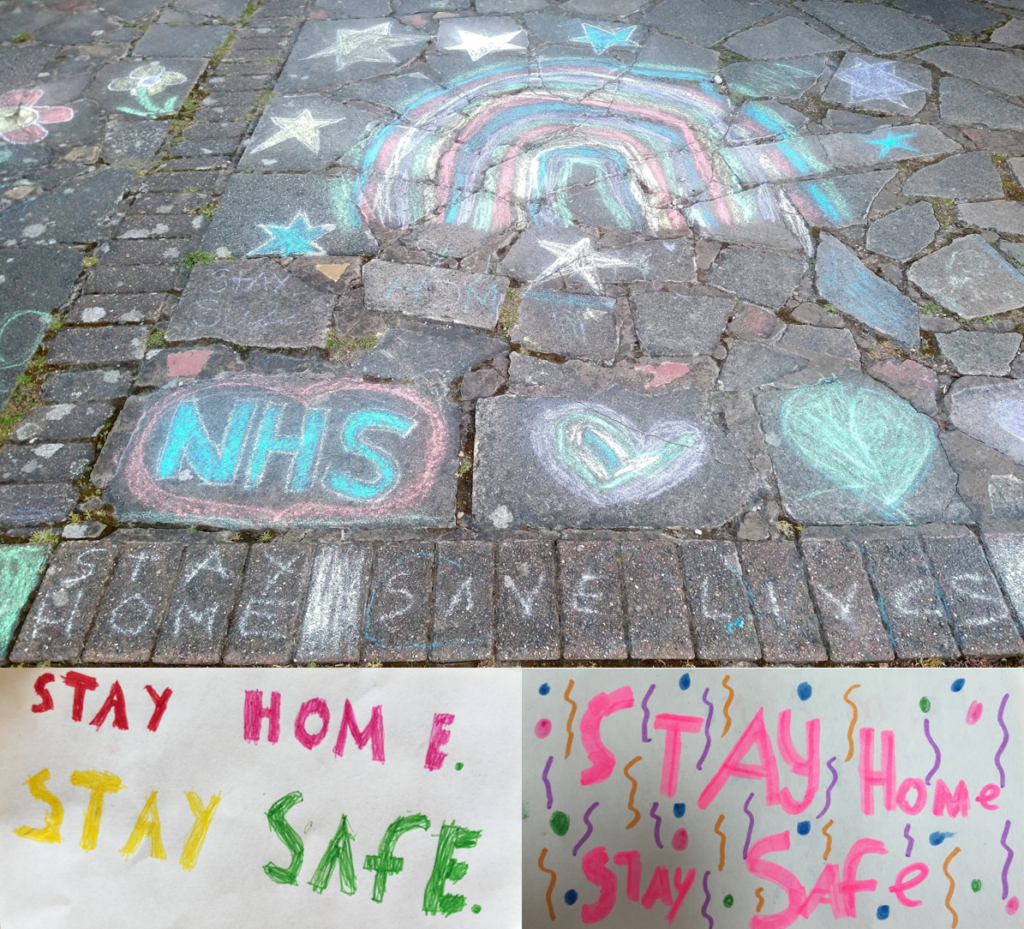
That, after all, is the point of propaganda. Wikipedia defines propaganda as
“communication that is used primarily to influence an audience and further an agenda, which may not be objective and may be presenting facts selectively to encourage a particular synthesis or perception, or using loaded language to produce an emotional rather than a rational response to the information that is presented”
https://en.wikipedia.org/wiki/Propaganda
It is meant to persuade us to all think and behave in a certain way. That’s ideal for a crisis, when you need people to pull together and do as they are told. Presenting all the facts and their nuances leads to confusion. Debating their interpretation and the best course of action is not helpful as, no matter what course of action is chosen, it is most effective if everyone gets behind it, rather than the nation splitting into multiple factions. Finally, provoking an emotional rather than a rational response is the quickest, most effective way to reach people and move them to action. It’s arguable, therefore, that propaganda during this corona crisis is essential and ‘good’.
This form of communication has its downsides, however. Propaganda encourages us to believe in a simplified, black-and-white version of the world – and it engages our emotions so that we believe it with all our hearts. Dissent becomes unacceptable. This is a big problem given that the coronavirus crisis involves a novel virus on a scale that no one has personally experienced. There is no ‘correct’ course of action possible, as even the experts are learning as they go along. Essential to this learning process is the ability to speak openly and bring in new evidence to challenge perceptions or produce new insights. This is the basis of good science – yet it is anathema to propaganda.
Science, with its analytical processes and insistence on proof, also runs too slowly for propaganda, which wants to deliver encouraging predictions now. This leads to over-optimism, such as Boris Johnson’s moonshot announcement and Donald Trump’s prediction of having a vaccine in time for the election. This may give morale a boost in the short-term, but those very nuances and practicalities that propaganda loves to ignore, such as the lack of sufficient (and sufficiently accurate) tests, and the necessity of following good test procedures for a vaccine, quickly lead to embarrassing climb-downs – and disappointment.
As the crisis progresses, it is inevitable that new knowledge and changing circumstances lead to changes in policy. Propaganda may then be withdrawn from circulation, but how do you get it out of people’s heads? A message based on a rational response can be changed, if you explain the reasoning behind it. A message based on an emotional response is far harder to retract. If you have been told that if you go out then people will die, how can you later be encouraged to go back to the office to save the economy? The effect varies strongly from person to person. While a stark message such as ‘people will die’ will terrify some people into not daring to step outside their front door, some will not even notice it, while others will regard it as absurd and over-the-top, and deliberately do the opposite. I find it interesting that, while many government advice posters in the Netherlands and the UK have a similar, practical, positive tone, the UK also has a set of threatening posters, with horror-film style images and blunt, frightening messages. I can’t help but wonder if that is the reason why my family in the UK are frightened to take advantage of relaxations in the rules, while my family here in the Netherlands welcome them. Emotionally strong propaganda actually undermines the credibility of later messages, as people stick to believing what they first heard.
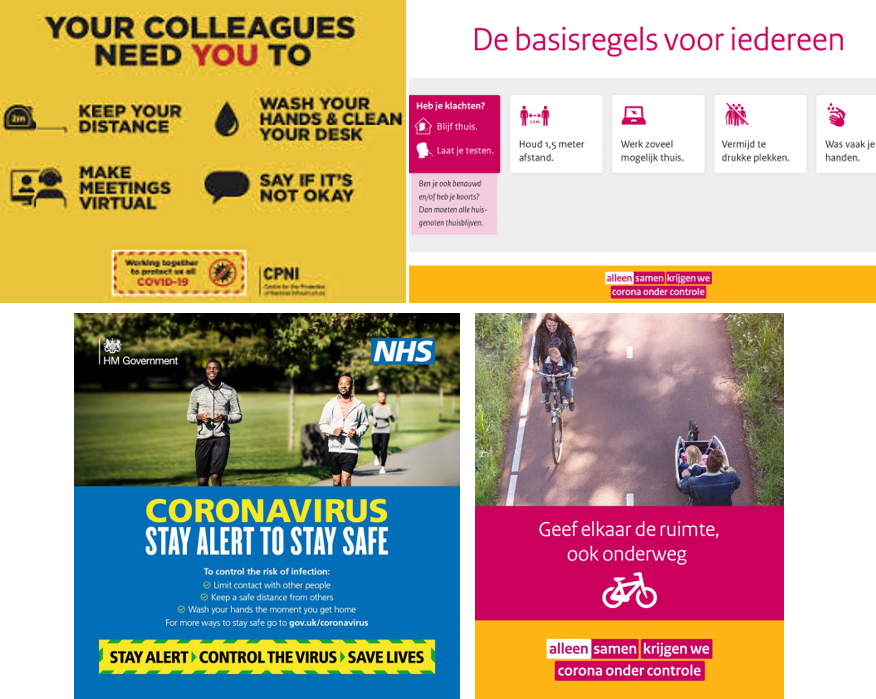
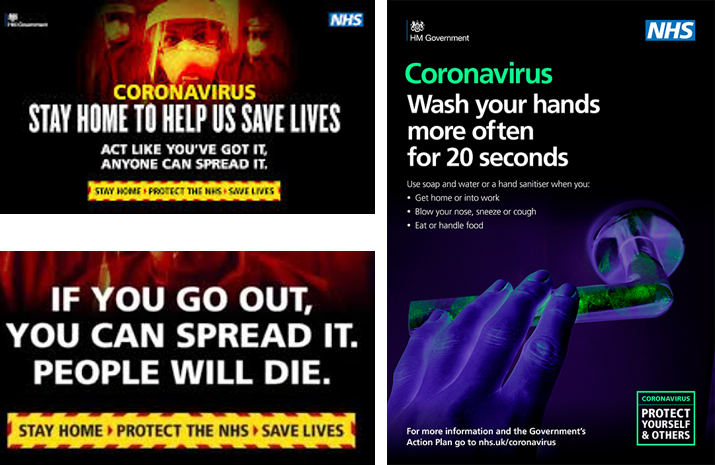
The combination of oversimplification with the deliberate provocation of emotional responses is also a dangerous cocktail. When the rules are laid down as sacred truth then people who don’t follow the rules are de facto dangerous heretics, leading to aggressive conflicts, such as the abuse of people who can’t wear masks for medical reasons. The corona propaganda also stereotypes certain groups, the reckless youth who go out partying, the selfish fun-seekers who eat in restaurants, visitors from abroad who bring in the virus. These stereotypes persist even in the face of contradictions – the many older people who break the rules daily, the statistics showing more transmission at home than in restaurants, the fact that the virus is already in our country. While targeted messaging can be effective, if it is applied unevenly then it runs the risk of creating lasting prejudices and resentments.
It is the broader effect of corona propaganda that most concerns me. In effect, the government wants people to suspend their independent thinking for the duration of the corona crisis. Do as you are told, don’t argue, put on a brave face. The corona crisis is being treated as a war, and most people can accept that in the midst of a battle is not a good moment for soldiers to disobey orders or question how their chain of command works. Unfortunately, this is the opposite to the attitude that is generally desirable in the citizens of a democracy. So much effort has gone into encouraging people to engage with politics, to question their leaders and hold them to account, to critically evaluate the information they receive and be alert to propaganda and fake news. Then a crisis arises and we demand that everyone switch from being active, critical participants to passive, obedient followers who allow their emotions to prevail over rational thinking. To my way of thinking, such a mentality is a bigger threat, in the long term, than any virus.